Feeding the “Least of These My Brethren”
The Church donated $44 million to promote childhood nutrition and bless nearly two million lives in 30 countries.
April 2021
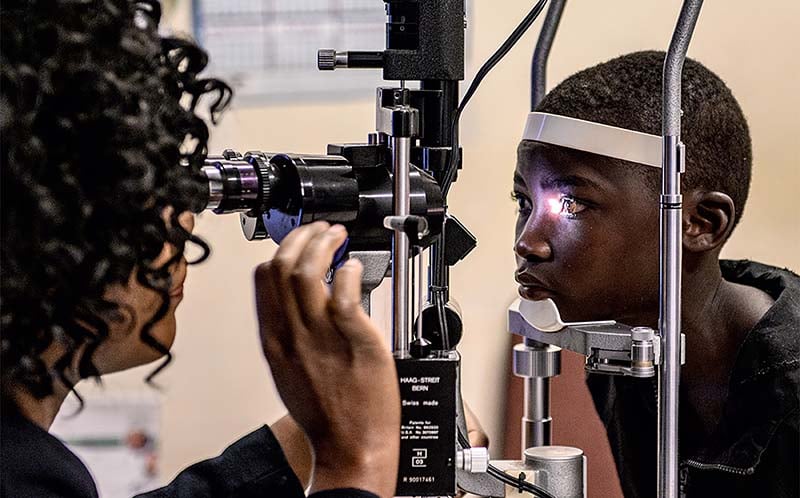
A Note from Blaine Maxfield, Managing Director, Welfare and Self-Reliance Services
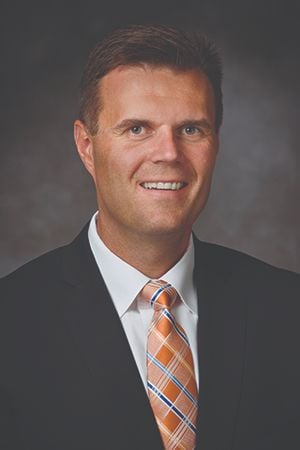
There is no doubt that this year has been unprecedented—both in challenges and humanitarian response. Not only was the world hit with COVID-19, but we’ve also seen earthquakes, hurricanes, and fires devastate communities across the globe. These disasters left thousands in desperate need of food, shelter, and supplies.
Because of your support, we’ve been able to respond to these needs and increase our emergency response efforts by nearly 500 percent in 2020. These efforts are in addition to our other work to help those in need, including partnering to restore eyesight in Malawi and provide meals to school children in Somalia. This response is only made possible by our trusted partners and donors like you.
We would not be able to fulfill our sacred duty to care for those in need without you. Your contributions are blessing more of God’s children every day, and for that, we are so grateful.
Partner Spotlight: Sightsavers
Sightsavers is a leading charity tackling blindness in developing countries, and it works with partners in more than 30 countries around the world on the root causes of avoidable blindness, such as lack of access to clean water. With the help of local partners, Sightsavers distributes treatments for diseases and carries out operations and eye examinations while fighting for the rights of people with disabilities. Since 1950, generous donations have enabled us to distribute 513 million treatments to protect against river blindness, provide 7.7 million sight-restoring cataract operations, and empower more than 242,000 people with disabilities to live independently.
Saving Sight and Restoring Hope
Mary, age 10, is one of four children in her family. She and her family live in Neno District, a dry, rural, hard-to-access region in southwest Malawi in Africa. Mary’s mother, Martha, says her other children were cruel to Mary due to her limited vision. Sometimes the children in the community would refuse to play with her because of her sight problems, and she became isolated.
Mary’s limited vision had severely affected her education. At the time, teachers didn’t realize she had cataracts. Initially, they asked her to sit at the front of the class, where she squinted, and her vision continued to deteriorate. Mary’s situation demonstrates the importance of Sightsavers’ volunteer case finders. These volunteers go into communities to find children like Mary whose families are unaware of the treatment options available.
After identifying Mary and counseling with her family about the option of surgery, Sightsavers transported her and her mother to the hospital for further vision assessment. Unfortunately, on Mary’s arrival at the hospital, Dr. Msukwa said Mary could not undergo cataract surgery because she had malaria. The anti-malaria medication would conflict with the medicines for the surgery. But because Sightsavers had identified Mary’s vision problem and brought her to the hospital, she could now receive the treatment she needed for malaria. Luckily, a week later, Mary was well enough for her surgery. Dr. Msukwa successfully operated on both of Mary’s eyes, and her sight was restored. Mary and her parents are delighted with the results.
“Now I can see much, much better and very clearly compared to before. Now I can do house chores like cleaning the house, washing dishes, and I can tend to some goats as well. I go to school, and now I am very happy.”
Martha says her dreams for her daughter are filled with hope: “I’m very thankful that Sightsavers has come to our rescue. We’re not able to get that kind of assistance on our own.”
Mary’s father, Francis, says that Mary is more independent now that her vision is restored: “She wasn’t able to do many things before the operation, but now she is able to do schoolwork properly and help at home. . . . When she brings the notebooks home, they are well written, whereas before she couldn’t do things like that.”
Thanks in part to funding from Latter-day Saint Charities, Mary now has the chance to gain an education and to participate more fully in her family and community life. Her future is brighter, and her happiness has improved beyond measure. “Now I can see much, much better and very clearly compared to before. Now I can do house chores like cleaning the house, washing dishes, and I can tend to some goats as well. I go to school, and now I am very happy.”
Worldwide, Did You Know?
36 million people are blind; 75% is preventable
Almost all of those affected live in developing countries and the tragedy is that most of these people didn’t have to go blind at all. Sightsavers works in some of the poorest areas of the world to protect sight, prevent avoidable blindness, and fight for the rights of people with disabilities.
COVID-19 Relief Projects
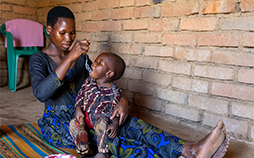
The Church donated $44 million to promote childhood nutrition and bless nearly two million lives in 30 countries.
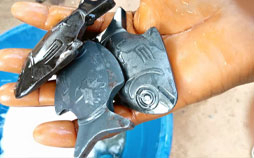
Humanitarian Services and Care have been working together to improve nutrition and food security in southeastern Benin by distributing the Lucky Iron Fish to help eliminate anemia.
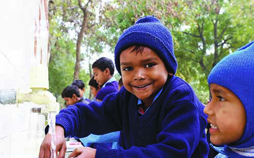
We recently provided support to WaterAid, an organization on a mission to transform lives by improving access to clean water, hygiene, and sanitation in the world’s poorest communities.